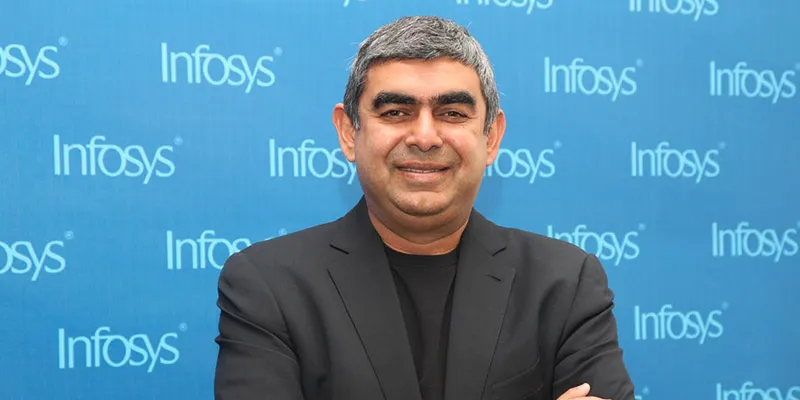Is Vishal Sikka in trouble at Infosys?
The year doesn’t seem to bode well for the IT industry. After the H1B visa row, reportedly there is trouble brewing within Infosys, India's second largest IT company. Even as the power struggle in the Tata group has begun to subside, it appears that Vishal Sikka, the first non-promoter CEO of Infosys, is now being seen as not ideal by a section of the founders.
According to a report in The Economic Times, some of the Infosys promoters are believed to have issues with what they see as a shift in values. Currently, the founders hold 12.75 percent together in Infosys. Of this the largest block is held by N.R. Narayana Murthy and his family. However, the report also said that majority of the board currently supports Sikka.
The issues raised were – the large severance package of Rs 17.4 crore to ex-CFO Rajiv Bansal, sharp increase in Sikka’s compensation, and the appointment of Union Minister Jayant Sinha’s wife Punita Sinha as an independent director.

The report in ET said the differences have been simmering for a while now. An Infosys spokesman told ET that all the decisions taken were bona fide and backed by appropriate disclosures. Infosys has also clarified that Sikka’s cash compensation has gone down and the increase has primarily been in restricted stock units (RSU’s) and stock options.
It is believed that Sikka has set some steep targets: $20 billion revenue, 30 percent operating margin and $80,000 in revenue per employee by 2021. Infosys’ current revenue is $10 billion. The board also believes that Punita Sinha is qualified for the job and the severance packages are per international standards.
David Kennedy, ex-legal counsel and Michael Reh, an executive VP, too were paid high severance packages when they quit. Sikka has been focusing on improving innovation, employee morale and moving up the value chain since August 2014.
He believes that the older Indian IT businesses such as BPO, infrastructure management, application development and maintenance are slowing with falling margins. Sikka therefore believes that IT companies need to innovate and offer value-added services.
This, the report said, has led to demands for significant acquisitions. However, some of the founders are wary of more acquisitions.







